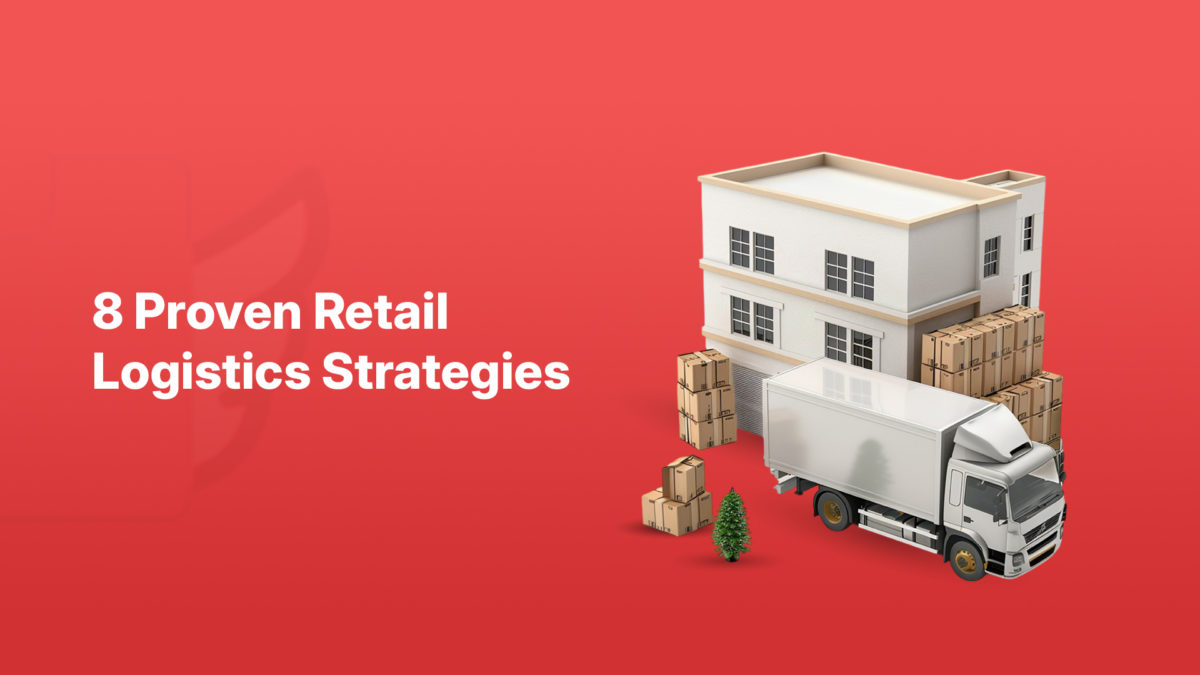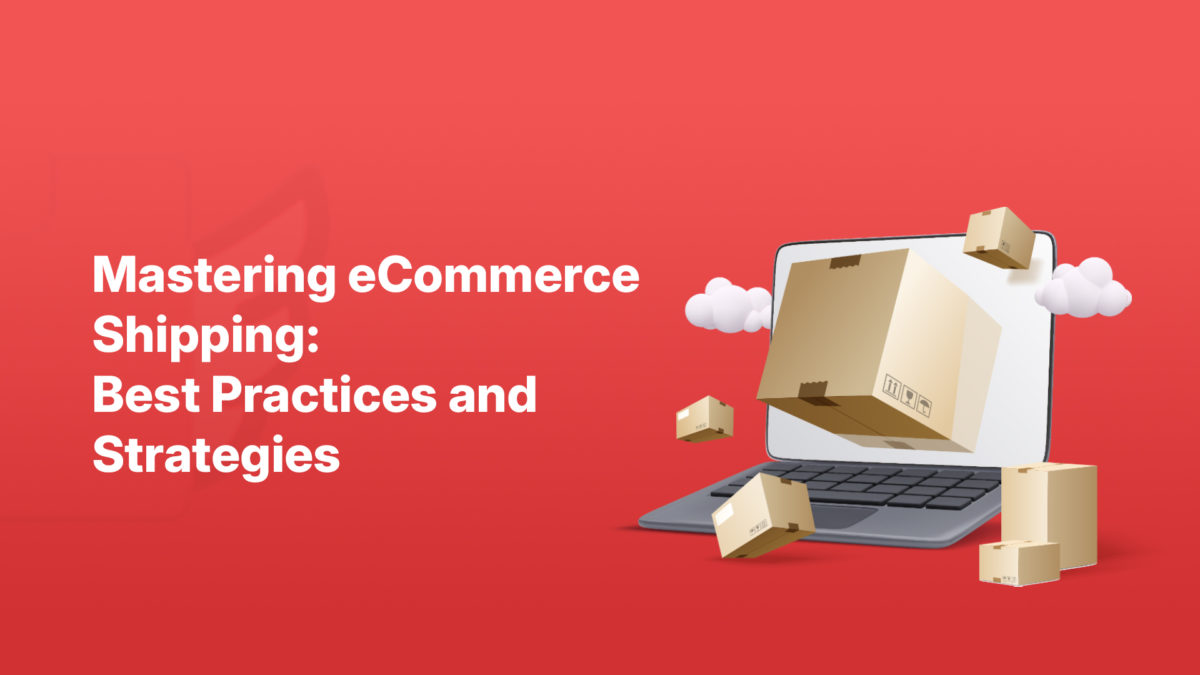Why LMS – Logistics Management Software Required for Every D2C Brand?
Outline of the Article
-
Introduction
- Brief overview of D2C brands
- Importance of logistics in D2C success
- Introduction to Logistics Management Software (LMS)
-
Understanding D2C Brands and Their Logistics Challenges
- Definition of D2C brands
- Common logistics challenges in D2C businesses
- Need for streamlined logistics operations
-
What is Logistics Management Software (LMS)?
- Definition and key features
- How LMS works for D2C brands
- Differences between traditional logistics and LMS
-
Key Benefits of LMS for D2C Brands
- Improved inventory management
- Faster order processing and fulfillment
- Real-time tracking and visibility
- Cost savings and efficiency
-
LMS and Inventory Management
- Importance of real-time inventory tracking
- Reducing stockouts and overstocking issues
- Integration with multiple sales channels
-
Enhancing Order Fulfillment with LMS
- Automation in order processing
- Optimized shipping and last-mile delivery
- Reducing human errors in logistics
-
Improving Customer Experience with LMS
- Faster deliveries and accurate tracking
- Reduced return rates and better customer service
- Enhancing brand loyalty through efficient logistics
-
How LMS Helps in Cost Optimization
- Reducing operational costs
- Smart route planning for deliveries
- Avoiding penalties due to delayed shipments
-
LMS and Real-Time Data Analytics
- Importance of data-driven decision-making
- Performance tracking and reporting features
- Forecasting demand and managing supply chain risks
-
Integration of LMS with Other Business Tools
- Syncing with eCommerce platforms
- ERP and CRM integration for smooth operations
- Benefits of API-driven connectivity
- Scalability and Flexibility of LMS for Growing D2C Brands
- Adapting to increased order volumes
- Multi-warehouse and multi-location management
- Customizable workflows and automation
- Security and Compliance in LMS
- Data security and encryption measures
- Compliance with shipping regulations
- GDPR and data protection considerations
- Choosing the Right LMS for Your D2C Business
- Key factors to consider
- Cloud-based vs. on-premise solutions
- Top LMS providers in the market
- Future Trends in LMS for D2C Brands
- AI-driven logistics and automation
- Blockchain for enhanced transparency
- IoT and smart warehousing solutions
- Conclusion
- Summary of key benefits of LMS
- Final thoughts on why D2C brands must adopt LMS
Why LMS – Logistics Management Software Required for Every D2C Brand?
The rise of Direct-to-Consumer (D2C) brands has changed the way businesses sell and deliver products. Unlike traditional retail models, where brands depend on intermediaries, D2C brands connect directly with customers through their online platforms. This direct approach gives them better control over their brand identity, customer relationships, and profit margins.
However, with great control comes major logistical challenges. Managing inventory, ensuring fast deliveries, handling returns, and keeping operational costs low can be a nightmare without the right tools. This is where Logistics Management Software (LMS) comes in.
LMS acts as a backbone for D2C logistics, helping brands optimize their supply chain, improve efficiency, and enhance customer experience. But why is it so essential? Let’s dive deeper into the need for LMS in D2C businesses.
Understanding D2C Brands and Their Logistics Challenges
What Are D2C Brands?
D2C (Direct-to-Consumer) brands cut out the middleman and sell directly to customers. Companies like Warby Parker, Allbirds, and Casper have disrupted traditional retail by focusing on eCommerce and building strong direct relationships with consumers.
Common Logistics Challenges Faced by D2C Brands
- Order fulfillment delays – Without proper logistics planning, shipping delays frustrate customers.
- Inventory mismanagement – Overstocking or stockouts can lead to lost revenue and unhappy customers.
- High shipping costs – Inefficient delivery planning results in unnecessary expenses.
- Returns and reverse logistics issues – Handling customer returns without automation is complex and costly.
- Scaling difficulties – As order volume increases, managing logistics without LMS becomes chaotic.
Why Streamlined Logistics is Essential?
For D2C brands, logistics is not just a backend function—it’s a crucial part of the customer experience. A well-managed logistics system ensures timely deliveries, reduces operational costs, and boosts customer satisfaction. This is why adopting an LMS is no longer optional; it’s a necessity.
What is Logistics Management Software (LMS)?
LMS is a technology-driven solution designed to help businesses streamline their logistics and supply chain operations. It automates and optimizes various aspects of logistics, including:
- Order management – Processing orders efficiently and reducing manual errors.
- Inventory tracking – Monitoring stock levels in real-time.
- Shipment tracking – Providing visibility into package movements.
- Returns management – Handling reverse logistics seamlessly.
How LMS Works for D2C Brands
LMS integrates with eCommerce platforms, warehouses, and delivery partners, ensuring seamless order fulfillment. By automating processes, brands can reduce human errors and speed up deliveries.
Traditional Logistics vs. LMS-Driven Logistics
| Feature | Traditional Logistics | LMS-Driven Logistics |
|---|---|---|
| Order Processing | Manual, slow | Automated, fast |
| Inventory Management | Reactive (after issues arise) | Proactive (real-time tracking) |
| Delivery Tracking | Limited visibility | Real-time updates |
| Cost Efficiency | Higher costs due to inefficiencies | Optimized cost-saving strategies |
| Scalability | Difficult to scale | Easily adaptable |
Key Benefits of LMS for D2C Brands
1. Improved Inventory Management
LMS provides real-time stock visibility, helping brands manage demand fluctuations effectively. No more stockouts or overstocking!
2. Faster Order Processing and Fulfillment
By automating order workflows, LMS reduces delays and ensures accurate dispatching. This leads to quicker deliveries and happier customers.
3. Real-Time Tracking and Visibility
Customers today expect to track their orders at every step. LMS provides live shipment tracking, giving both brands and customers full visibility.
4. Cost Savings and Efficiency
LMS helps optimize routes, consolidate shipments, and minimize wasted resources—leading to significant cost reductions.
LMS and Inventory Management
Real-Time Inventory Tracking
One of the biggest challenges D2C brands face is managing inventory efficiently. LMS provides real-time inventory tracking, allowing brands to monitor stock levels across multiple warehouses. This prevents situations where customers order a product that is out of stock, leading to frustration and loss of trust.
Reducing Stockouts and Overstocking
- Stockouts mean lost sales and dissatisfied customers. LMS helps predict demand trends and automatically restocks products before they run out.
- Overstocking ties up cash flow in unsold goods. LMS prevents excessive stocking by providing accurate demand forecasts.
Seamless Integration with Multiple Sales Channels
D2C brands often sell across multiple platforms, including their website, marketplaces (Amazon, Shopify, eBay), and even offline stores. LMS syncs inventory data across all these channels, ensuring stock accuracy and preventing overselling or underselling.
Enhancing Order Fulfillment with LMS
Automation in Order Processing
With LMS, manual order processing is replaced with automated workflows. Orders are received, sorted, and assigned to warehouses instantly, reducing human errors and speeding up fulfillment.
Optimized Shipping and Last-Mile Delivery
Shipping plays a huge role in customer satisfaction. LMS integrates with multiple delivery partners, selecting the fastest and most cost-effective option for each order.
Reducing Human Errors in Logistics
Errors like wrong product dispatches or incorrect addresses lead to customer complaints and returns. LMS automates label printing, barcode scanning, and verification steps, ensuring that every package is correctly processed and delivered.
Improving Customer Experience with LMS
Faster Deliveries and Accurate Tracking
Customers expect Amazon-level speed and tracking. LMS provides:
- Same-day or next-day shipping options
- Live tracking links for customers
- Automated notifications for delivery updates
Reduced Return Rates and Better Customer Service
A smooth logistics process reduces returns due to errors and delays. If a return is necessary, LMS streamlines the process, offering:
- Instant return labels
- Automated refund or exchange processing
- Tracking for returned items
Enhancing Brand Loyalty Through Efficient Logistics
Logistics isn’t just about shipping—it’s about building trust. When customers receive their orders on time, without issues, they are more likely to return and recommend the brand.
How LMS Helps in Cost Optimization
Reducing Operational Costs
LMS cuts down on manual work, mismanagement, and inefficiencies, leading to lower operational costs.
Smart Route Planning for Deliveries
With AI-driven route optimization, LMS ensures shorter delivery times while reducing fuel and shipping costs.
Avoiding Penalties Due to Delayed Shipments
Late deliveries can result in penalties and unhappy customers. LMS prevents delays by:
- Predicting potential disruptions (weather, traffic, holidays)
- Automatically rerouting shipments for faster delivery
LMS and Real-Time Data Analytics
Importance of Data-Driven Decision-Making
LMS collects real-time logistics data, helping businesses make informed decisions based on actual trends.
Performance Tracking and Reporting Features
LMS provides detailed reports on:
- Shipping times and carrier performance
- Warehouse efficiency
- Customer complaints and return rates
Forecasting Demand and Managing Supply Chain Risks
With AI-powered forecasting, brands can predict demand spikes and prevent stock shortages or overproduction.
Integration of LMS with Other Business Tools
Syncing with eCommerce Platforms
LMS seamlessly integrates with platforms like Shopify, Magento, WooCommerce, and Amazon, ensuring smooth logistics flow.
ERP and CRM Integration for Smooth Operations
LMS connects with ERP (Enterprise Resource Planning) and CRM (Customer Relationship Management) tools, ensuring full business process automation.
Benefits of API-Driven Connectivity
LMS uses API technology to connect with different third-party tools, making it easy to customize and scale as business grows.
Scalability and Flexibility of LMS for Growing D2C Brands
Adapting to Increased Order Volumes
As brands grow, LMS scales effortlessly, managing thousands of orders per day without glitches.
Multi-Warehouse and Multi-Location Management
LMS allows brands to operate multiple warehouses across different locations, optimizing deliveries for faster shipping.
Customizable Workflows and Automation
LMS adapts to the unique needs of a brand, offering custom workflows, automation rules, and AI-powered logistics improvements.
Security and Compliance in LMS
Data Security and Encryption Measures
LMS ensures that customer and business data is protected using high-end encryption and cybersecurity measures.
Compliance with Shipping Regulations
LMS helps brands comply with international shipping laws, tax regulations, and product restrictions to avoid legal issues.
GDPR and Data Protection Considerations
LMS ensures compliance with GDPR and other data privacy laws, keeping customer information secure and private.
Choosing the Right LMS for Your D2C Business
Key Factors to Consider
When selecting an LMS, consider:
- Ease of integration with your current system
- Scalability for future growth
- Support for multiple shipping partners
- Advanced reporting and analytics features
Cloud-Based vs. On-Premise Solutions
- Cloud-based LMS – Easy to set up, scalable, and accessible from anywhere.
- On-premise LMS – Offers better control over security but requires maintenance.
Top LMS Providers in the Market
Some leading LMS solutions include:
- Instalogix – Shipdelight
- ShipStation
- ShipBob
- EasyShip
- Zoho Inventory
Future Trends in LMS for D2C Brands
AI-Driven Logistics and Automation
Artificial intelligence will continue to enhance logistics, improving delivery speed, predictive analytics, and automation.
Blockchain for Enhanced Transparency
Blockchain technology will improve supply chain transparency, ensuring secure and tamper-proof tracking.
IoT and Smart Warehousing Solutions
The Internet of Things (IoT) will enable smart warehouses with automated sorting, drone deliveries, and real-time tracking.
Conclusion
D2C brands operate in a fast-paced eCommerce world where logistics plays a crucial role in success. Without a robust Logistics Management Software (LMS), brands struggle with delayed shipments, high costs, inventory mismanagement, and customer dissatisfaction.
An LMS automates logistics, reduces costs, optimizes deliveries, and improves customer experience, making it an indispensable tool for every D2C business.
If you run a D2C brand, investing in a powerful LMS is not an option—it’s a necessity. Stay ahead of the competition by streamlining your logistics and scaling efficiently with the right LMS!
FAQs
1. Why is LMS important for D2C brands?
LMS helps D2C brands manage inventory, automate order fulfillment, optimize deliveries, and reduce costs, improving overall efficiency.
2. Can LMS integrate with Shopify and Amazon?
Yes! Most LMS solutions integrate seamlessly with Shopify, Amazon, WooCommerce, and other eCommerce platforms.
3. Does LMS help in reducing shipping costs?
Absolutely! LMS optimizes shipping routes, reduces delays, and selects the best carriers, minimizing expenses.
4. What is the best LMS for a small D2C business?
Popular LMS options for small brands include ShipStation, ShipBob, and Zoho Inventory, based on their ease of use and cost-effectiveness.
5. How does LMS improve customer experience?
LMS enables fast deliveries, accurate tracking, smooth return management, and lower errors, ensuring a seamless shopping experience.


